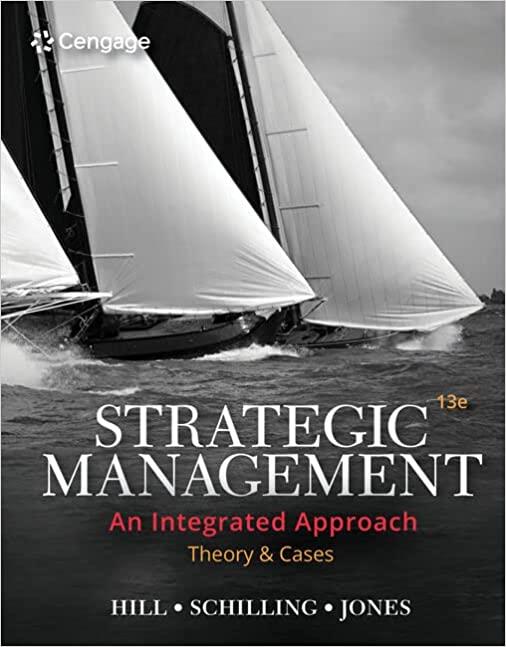When Howard Schultz founded Starbucks in 1987, he wanted to create a company that would genuinely care
Question:
When Howard Schultz founded Starbucks in 1987, he wanted to create a company that would genuinely care for the well-being of its employees.
He had been very influenced by his memories of his father, noting that his father “struggled a great deal and never made more than $20,000 a year, and his work was never valued, emotionally or physically, by his employer ... This was an injustice ... I want our employees to know we value them.” He also believed that happy employees are the key to competitiveness and growth. As he stated: “We can’t achieve our strategic objectives without a work force of people who are immersed in the same commitment as management. Our only sustainable advantage is the quality of our work force. We’re building a national retail company by creating pride in–and stake in–the outcome of our labor.”
Schulz set out to accomplish his goals by creating an empowering corporate culture, exceptional employee benefits, and employee stock ownership programs. While Starbucks enforces almost fanatical standards of coffee quality and customer service, the culture at Starbucks towards employees is laid back and supportive. Employees are empowered to make decisions without constant referral to management, and are encouraged to think of themselves as partners in the business. Starbucks wants employees to use their best judgment in making decisions and will stand behind them. This is reinforced through generous compensation and benefits packages.
In 2000, Schultz announced that he was resigning as CEO and left the firm to pursue other ventures (though he remained chairman of the board of directors). However, after Starbucks began to suffer from slumping net income and decreasing share price, Schultz returned to the helm in 2008. Rather than cutting costs and reducing the work force, Schulz announced his “Transformation Agenda”–
a controversial plan to invest in Starbucks’ employees, environment, and community. His plan included:.....
Questions
1. What are the pros and cons of Starbucks taking a stance on ethical issues such as minimum wage requirements, sustainable growing practices, and more? What do you think motivated Schultz to implement these standards?
2. Do you think it makes sense for companies to hold themselves to a higher standard than the law? Do you think it makes sense for companies to utilize ethical standards that might not increase profitability?
3. How much influence do you think a company with the size and reach of Starbucks could have on the legal and ethical environment of the countries in which it operates?
Step by Step Answer:

Strategic Management Theory And Cases An Integrated Approach
ISBN: 9780357033845
13th Edition
Authors: Charles W. L. Hill, Melissa A. Schilling, Gareth R. Jones





